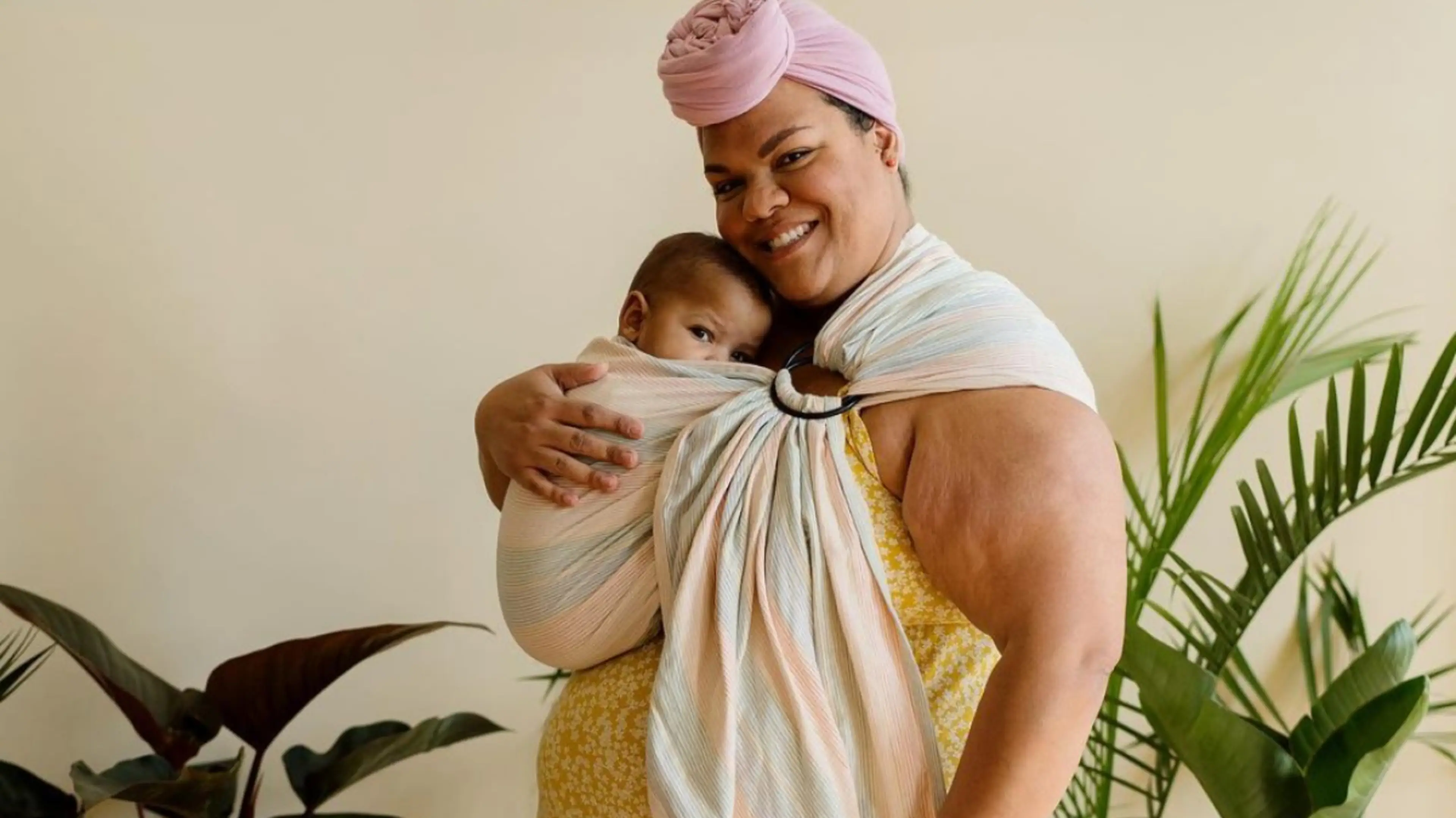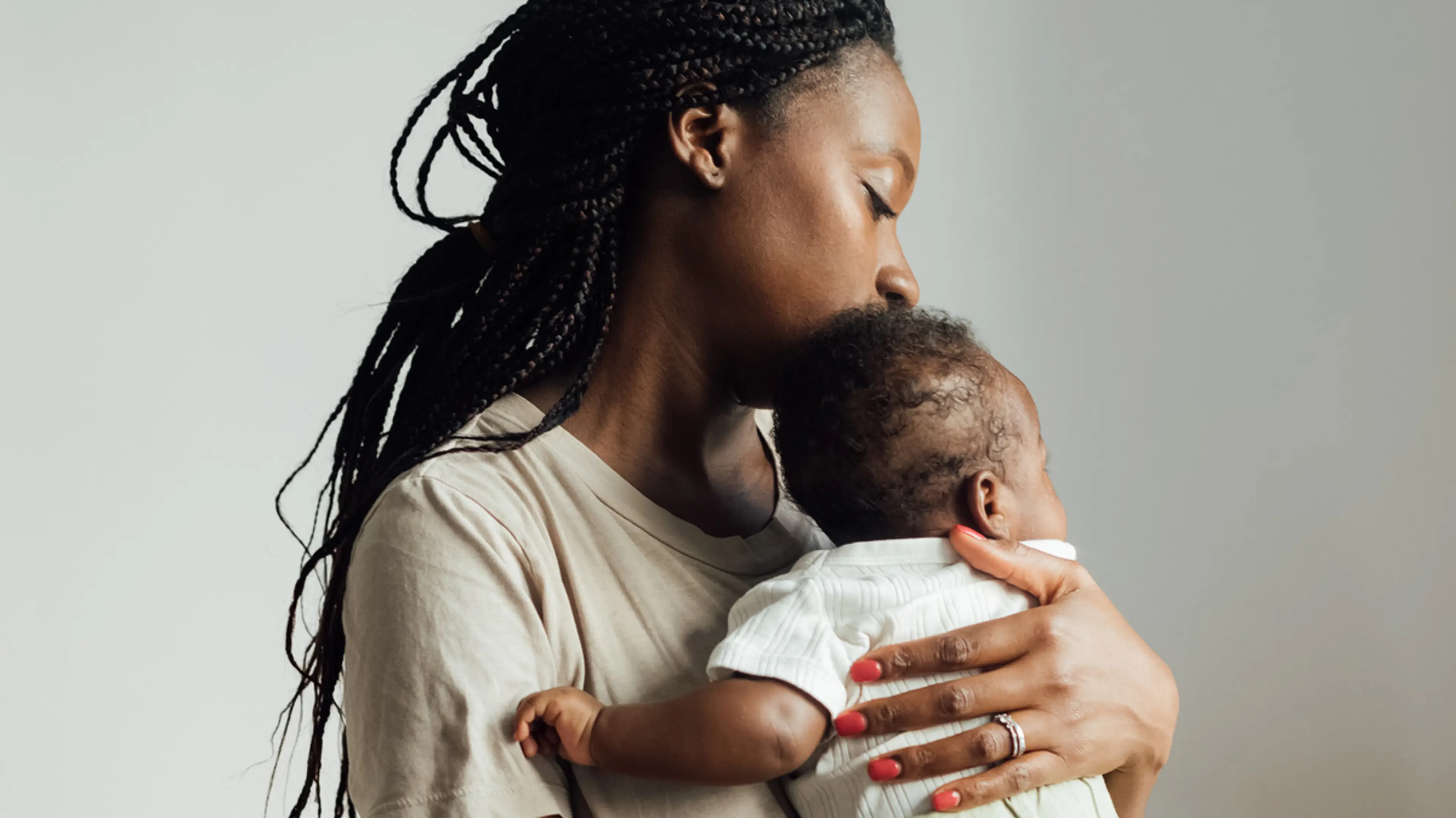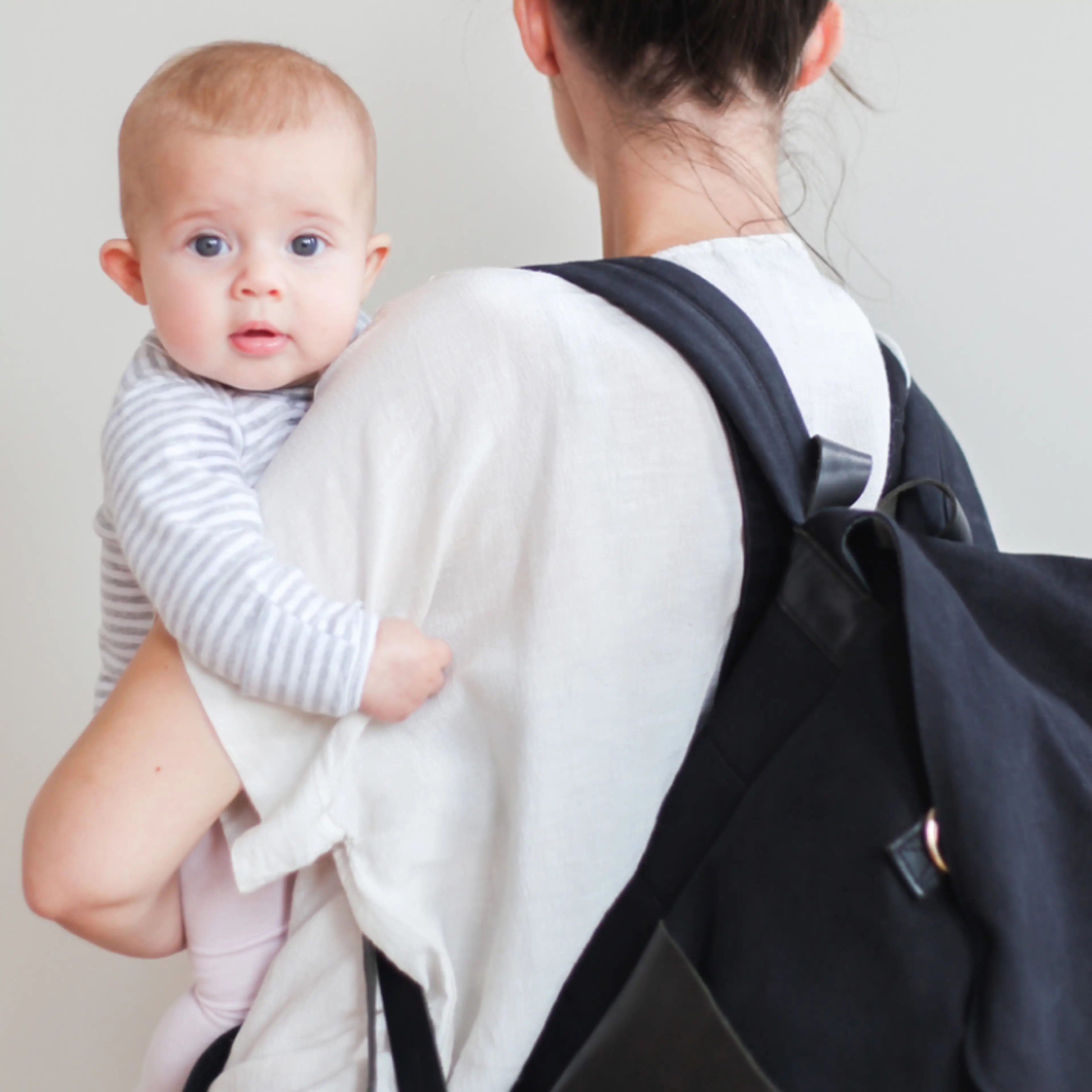TLDR: Your brand new baby is getting used to the world, and though they sleep a lot, it’s not always predictable or easy to come by. From how to soothe your newborn to what to expect from their immature sleep cycles, here is a guide to the most important newborn sleep advice you will need to get you through the first three months of your baby’s life.
Bringing home your baby means lots of big changes are on the horizon. One of the most difficult transitions for many parents to master is the elusive newborn sleep. To better help you get through this time, it’s important to understand what changes your tiniest family member is experiencing.
During the first three months of life, your baby is growing at a rapid rate. Their vision is getting clearer, their cries begin to change when they want different things, and their stomach expands and feeding becomes more routine. By about month five, they will have nearly doubled their birth weight!
Until they reach an age when you can choose to begin sleep training (which is typically over four months), this time should be about setting up safe, healthy sleep habits and working towards long-term goals.
Heather Turgeon, sleep consultant and co-author of the book The Happy Sleeper1 , says, “During the first months of life, babies are slowly and steadily developing an internal clock, as well as self-soothing abilities. The goal during this time is to help them, while also gradually allowing them more space so these capabilities can unfold.”
Here are the basics you should know about your baby’s sleep for the first three months of their life.
A Quick Breakdown of Newborn Sleep Cycles
To understand how a baby sleeps, you first have to understand adult sleep. When you lay your head down at night, your body follows a natural cycle. “There are four stages of sleep, including REM and non-REM sleep. You pass through light sleep, into deep sleep, and then into REM,” Turgeon says. The REM cycle2 is the sleep stage we associate with dreaming and being fully relaxed, or “out like a light.”
You may also be familiar with the circadian rhythm, or the 24-hour cycle your body follows each day3 . Turgeon explains, “These rhythms are controlled by internal clocks in the brain and throughout the body, that anticipate the rising and setting sun and control when we are alert, sleepy, and more.” We also experience a change in cortisol4 levels throughout the day that assists these processes. In other words, we know that nighttime means it’s time to sleep and daytime means it’s time to be awake.
Babies, on the other hand, don’t know how to differentiate between day and night yet. Not only that, but they only have two sleep stages: active5 (when baby is still a little wiggly, maybe making sounds) and quiet (their version of deep sleep). These stages last somewhere between 40 and 55 minutes, though it can vary widely from one baby to another.
How Much Sleep Does Your Baby Need?
According to the National Sleep Foundation, newborns need 14 to 17 hours of overall sleep, including daytime naps. This seems like a lot, but keep in mind that they tend to sleep in shorter stretches, meaning your little one will wake up for a feeding, diaper change, or something else every 2-3 hours.
Which ultimately means you’ll be getting shorter stretches of sleep at night than you might be used to. The good news, though? Your baby will begin to find a pattern and sleep longer as they continue to grow (and their sleep cycles will become more similar to an adults’ around month three).
If your baby isn’t consistently hitting at least 14 hours of sleep a day, you should talk with their pediatrician. Sometimes, issues like GERD (gastroesophageal reflux disease), a lip/tongue-tie preventing latching while feeding, or other issues could be making it difficult for your little one to get the rest they need.
Learn Your Newborn’s Sleep Cues, Wake Windows, and Nap Lengths
Have you ever felt so tired that it almost made you restless, and you found yourself fighting sleep? Or, on the other hand, have you ever felt like you were too awake to fall asleep, and you tossed and turned all night? Well, babies can do the same thing if they are over or under-tired.
Paying attention to your baby’s sleep cues will help you determine their wake windows and nap lengths. Babies will give off subtle signals that they are starting to feel tired. You’ll want to look for big yawns, rubbing their face near their eyes, staring or zoning out, and pulling or grabbing at their face, among other signals.
In the first 0-12 weeks of life, your baby won’t be able to stay awake for very long periods of time. So, their wake windows (how long they stay up between naps) will probably range from 30 to 90 minutes and their nap times will be between 30 minutes to 1.5 hours. It’s different for each baby, so try to pay close attention to the signs your little one is giving you.
Sleep Tip: Establish a Routine Early On
Because your baby can’t tell when it’s time for sleep on their own, they will rely on you for the signals about when to snooze and when to wake up. That’s why pediatric sleep consultant Julie Connelly6 suggests starting a bedtime routine as soon as you can. “Establishing these patterns and steps that happen consistently in the same order each night not only gives your child the cues that sleep is coming, but it’s extremely comforting, it provides security for them, and [promotes] bonding with your baby.”
Your routine could include a nice towel bath, reading together, a lotion massage, or a combination of things. Repeat them consistently, around the same time each day and night, so your baby will begin to recognize your sleep cues. You’ll also want to have a routine for naps.Try rocking, swinging or something that feels easy for you to include day-to-day.
If your baby is moving out of the newborn stage and doesn’t have a sleep routine, don’t panic. “It’s never too late to try one or change one,” Connelly says.
Pro-tip: scope out some newborn sleep courses before your baby arrives (or after, if you’re reading this while your baby is currently sleeping). The better you plan and prepare, the more chances of success for you and your family to get back to better sleep!
The Secret to Newborn Sleep? The 5 S’s
The 5 S’s were coined by pediatrician Dr. Harvey Karp7 as five ways to soothe a baby to sleep. Many of these suggestions mimic sounds and experiences your baby felt while in the womb, so they find them comforting. You may already be doing some of them, but if not, you can give them a shot to help your baby get to sleep in these early days.
Swaddle: swaddling helps to recreate the cozy tightness and security of your womb. It also decreases the Moro reflex, when babies accidentally startle themselves and wake themselves up.
Side Position: Babies are safest sleeping on their backs, but if they’re fussy, you can turn them on their side and rub their backs to calm them until they drift to sleep. Once they’re out, return them to the back position.
Shush: Babies are used to mom’s blood whooshing around them in the womb, so total silence may not be as comforting to them as it is for you. Think about investing in a sound machine that you can continue to use as your child grows. The white noise can help them calm down and go to sleep.
Sway/Swing: Over the last nine months, your baby got used to being swung and swayed while in your belly. Remember how calm they were when you were moving around and how active and awake they were when you were still? A mechanical swing, or just your arms, can also help soothe them if they’ve woken up from sleeping. Just remember that it is not recommended for your baby to sleep in that swing. Once they’re asleep, move them to the bassinet or crib where they can sleep on their back.
Suck: Babies enjoy the motion of sucking, even if they aren’t feeding. If you aren’t breastfeeding, or if you have a well-established latch, try offering your baby a bottle, pacifier, or even a lovey if they begin to fuss while sleeping.
Conclusion
Many parents hope their baby will sleep through the night soon after being born, but realistically, this just isn’t the case, nor is it developmentally appropriate for them. Your baby is adjusting to the big new world!
The good news is, sleepless nights will ease up soon. Just try to be patient and know that your best is exactly enough. It’s okay to lean on support systems during this time, and asking for help is not only necessary, but encouraged.












